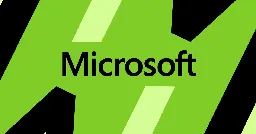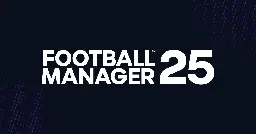I assume by "subreddit" you mean Lemmy Community?
So, you created and moderate [email protected] , you posted something there. Someone clicked "Create Report", and as a result you (the moderator of that community) received a report. Naturally, you didn't ban yourself. But, somehow you were banned from discuss.tchncs.de? Do the admins of that site receive a report if one of their users reports something? Or, was there a separate report that they acted on?
In a way though, I guess this is working as intended with distributed moderation. If someone had a Hitler fan club community on their own server nobody could make them shut it down, but the existence of that community might be enough to warrant banning them and/or defederating their instance. But, I'd assume there was a separate report requesting that you be banned from their community that went to their moderators.
What's funny about this is that the complaint was "Med spam". Lemmy is a "pull" design, you don't get community posts sent to you, you have to go out looking for them. So, this is a bit like choosing to go to a steakhouse and then leaving a bad review because they didn't have good vegan options.
But, they also don't want this to happen ever again.
What I suspect is that it nothing much will happen for months. There might be a sternly worded letter that they send to the franchisee that they really intend for the public: something about how McDonalds is not supporting either party, and franchisees are not permitted to use their locations for political events. Then, months later (especially if Harris wins), they'll remove that franchise and ban the franchisee from owning a McDonalds again.
I'm sure they'd love to do that, but the problem is that mixed in with all the nonsense there actually may be things that would become policy. Like, if you're in Mexico's government, you really do need to know what his plans are going to be for the border. And, every once in a while he'll slip something into his rambling nonsense which might actually relate to border policy.
It's not just one generation receiving an education vs. another one that didn't. It's that the platforms the generations used are fundamentally different.
Gen X / Millennials grew up with Macs and PCs, computers that were fundamentally not locked down. You could install any software you wanted. You could modify the OS in many ways. DRM wasn't really a thing in general, and there were almost always easy ways around it.
Gen Z / Gen Alpha grew up mostly with cell phones. The phones they had are much more powerful than the PCs from 20-30 years ago, but they're incredibly locked down. The only applications you're allowed to use are the ones that Apple / Google allow on their app stores, unless you root your phone which is a major risk. It's very hard to even load up your own audio files, movies or images let alone "dodgy" ones. DRM is everywhere, and the DMCA means you risk serious prison time if you bypass access controls.
Gen X / Millennials grew up at a time when there were still more than 5 tech companies in the world, and the companies out there competed with each-other. There were plenty of real standards, and lots of other de-facto standards that allowed programs to interoperate. Now you're lucky if you can even use an app via its website vs. using a required app.
It's not just a difference in education. It's that companies have gained a lot more power, and the lack of antitrust enforcement has made for plenty of walled gardens and "look but don't touch" experiences.
An appropriate weapon you practice with regularly.
You know someone's American when...
The issue is that you can't prepare for everything. Having extra food and water, sure. Maybe buying a generator so you can use electrical equipment, that's generally useful. But, aside from that, your preparations for a flood will be very different from your preparations for a military invasion, which would be different from preparing for a pandemic.
Also, the more extreme your preparations are, the more it matters when you pull the trigger and activate your emergency plans. If your preparation is simply having a cupboard with extra toilet paper and some extra canned food, it's no big deal to pull that stuff out if the store runs out. But, if you have some kind of bunker in the mountains, it's a bigger decision when to "bug out" of the city and go live in the mountains. You're basically quitting your job, so if the emergency is something like the COVID pandemic, when do you decide things are so bad that you can take that extreme step?
Oof. I just realized something. There must be people whose job it is to translate the transcription of Trump's speeches into other languages. Journalists might have to do it for media in their country. People working in the diplomatic / spy apparatus of their countries might need to track what an American president / presidential candidate says in case it is important to their national interests.
Can you imagine having to do that, to structure what he says so that it vaguely makes some kind of sense in another language?
I also wonder if there's a way that a screenwriter could organize, punctuate and annotate this mess so that an actor could deliver these lines the same way. Like, it's obviously a word salad, but there's a variety in the kinds of emphasis he uses for certain words or phrases. Since there's no "natural" way to say all those words, I wonder if there's a way to transcribe it so that an actor could say the words in the same way without having to listen to the speech.
It's pretty interesting how we're all running basically the same hardware, but there are major software differences.
I mostly go barefoot too, and the shoes I have are "barefoot shoes" that have extremely thin soles. But, I still don't think the individual toes are that important to grip. Sure, the toe pads are important. If you're moving on the balls of your feet, I'd guess maybe 30% of your weight is in your toes. But, I don't think I'm getting much contribution to agility from my baby toe being splayed out. If I glued my toes together, I think it wouldn't hurt my agility much, and it would mean I'm much less likely to catch that individual, fragile baby toe on a corner.
I have songs stuck in my head all the time and I ‘know’ what they sound like, and my brain keeps the beat with the song, but I’m not hearing it.
That's just weird. You're aware there's a song stuck in your head, but you can't actually hear it? I wonder if that's more or less frustrating than a song stuck in your head that you can hear.
Can you taste or smell things that aren’t around?
Yes, but if normal experience of a taste or smell is a 10/10 in sensation, imagining a taste or smell is like a 1/10. Like, imagining smelling salts which are just overwhelming in reality barely rate a tickle in imagination. Same idea with taste. I can imagine biting into a lime, which in reality would be an almost painful experience in reality, but in the imagination it's barely noticeable. I imagine that when I'm imagining a situation, all the body sensations are there: sight, sound, taste, smell, touch, even proprioception. But, I think everything is muted compared to reality, sight might be at a 3/10 compared to reality, sound maybe at a 2/10, and the others are lower, probably even below 1/10. I can only manage a 1/10 for something that would be an overwhelming sensation in reality.
I think the name comparison I mentioned is probably the best I can think of. When you see a person you know, how do you remember their name?
I remember their name as just a fact associated with the person. However, I can't imagine remembering someone's name without also trying to picture their face. So, I guess it's more like remembering the name of someone who's like a pen pal or something. Someone I've never met face to face.
I was just thinking about this, and thought of podcasters that I listen to, whose faces I've never seen. With them, I don't picture a face because I've never seen one. But, I can "hear" the sound of their voices. I'm guessing you don't do that either?
A stop sign is a hexagon, red, with STOP in the middle.
It's actually an octagon. But, I assume that if you see a stop sign you don't have to count the sides, you just recognize it immediately?
What's interesting to me is that if I read a book, part of the pleasure is that the author is describing things in a way that allows me to picture them. It seems to me like not having the ability to picture things would make the book much less interesting. Like watching a movie that didn't have any soundtrack, just sound effects and dialogue. I guess you don't have anything to compare it to. But, I wonder if people who have aphantasia are less likely to enjoy books and more likely to enjoy movies?
and I’m super unclear what seeing things in your mind is supposed to be like.
It's hard to describe, but it's not replacing your eyesight. If I close my eyes I see black, or if there's some bright light I see red. But, it's like there's another visual channel going into your brain other than the one from your eyes. Most of the time, that channel is either off, or it's drowned out by the actual visual information which is so much more dominant. But, if your eyes are closed the fact there's no real information coming on the "real" visual channel means you're able to notice what the "virtual" visual channel is showing.
It's sometimes described as your "mind's eye", but for me, at least, it's not really like another eye because it's not detailed enough for that, but it's still as if there's an additional visual stream of information that goes from my memory to the visual processing part of my brain. For me, it's blurry and lacking in detail. It would be like using a slightly out of focus projector on a white wall in a well lit room. There are shapes and colours there, but they're hard to see. But, like an image from an out-of-focus projector, if you try harder you can make out more of what it's showing, and if you reduce other visual stimulus (like turn off the lights) you can notice more.
So for the ball example, I’d know the ball is “small, about the size of a plum, solid pink somewhere between neon and intense salmon, smooth matte texture, looks like it might be foam”.
Does this happen instantaneously for you? If I tried to come up with a description like that it would take several seconds, whether I'm doing it while actually actively looking at the object, or with my eyes closed working based on a memory of the image my eyes saw.
If you close your eyes and intentionally picture something other than the ball
Something real, or something I'm inventing with my imagination?
would you then be unable to tell me what color it was in your example?
Like, translate the image to a word? I can tell you a word, but the metal image will come first. I think I do need the visual representation to know the object. Like, if someone gives me a description of something, I'll build a mental image based on that description. If someone asked me to describe it later, I'd probably use different words because I'd be going based on the image not on remembering the words.
In your case, if you have a memory of something that is "small, about the size of a plum, solid pink somewhere between neon and intense salmon, smooth matte texture, looks like it might be foam", how easy is it for you to change the words you'd use to describe it? Like, say someone asked you to describe it but not to use any words related to living things, could you swap out "plum" and "salmon" without effort? Do you think you're storing those actual words, or are you storing a concept? For example, if you're remembering a white rock, is it "rock" you're remembering, or is it the concept of a rock, which can match similar words like "pebble", "stone", etc.?
Also, I wonder how this affects your ability to remember descriptions of things that are not physically possible in our 3d world, like a Klein bottle or a hypercube. I wonder if, for you, there's no real difference in difficulty remembering the details of a cube vs. a hypercube because you can't picture either of them. Whereas for me, I can easily remember / picture a cube, but for a hypercube it's hard because it's not something I can get a real visual representation of.
When you say you're answering from memory, what is it that you remember? For example. I have a plush soccer ball / football near my bed. I haven't looked at it recently but I can remember what it looked like. I can tell you it was white with 2 black pentagon shapes near the mid-bottom (where it's squished) and 2 more near the top. I didn't think of the words "white" or "black" or "pentagon" until it was no longer in my field of vision, I was able to come up with those words based on the mental image I still had. What I'm remembering is the image, and I'm able to come up with words based on that image. Are you remembering the words you would use to describe it? If so, do you automatically come up with those words?
For me, if I glance at something for half a second I can take a mental snapshot of how it looks, and then with my eyes closed I can come up with a bunch of words I'd use to describe it. The mental snapshot isn't going to be very detailed, but it's enough to come up with maybe a dozen descriptive words over a few seconds. But, if I tried to come up with the words while looking at it, I would still need those few seconds to come up with the words. The words aren't an automatic thing, it's something I have to intentionally choose to generate, and it's slow.
I'm assuming that if you have full aphantasia, you wouldn't even be able to picture a simple shape like a triangle. So, if you want to draw a triangle, do you do it based on remembering something like the dictionary definition of a triangle and using that "recipe" to generate one? For me, I imagine the shape I want to draw, then my hand attempts to create that shape. For something simple like a triangle that's easy. For something complex like a face it's hard because my hand isn't able to create something that matches what I'm imagining.
What about something like a stop sign. I assume you can't picture a stop sign in your mind, but do you recognize one instantly without effort when you see it? If so, I wonder what details your brain is actually storing, like if it's storing words, how many words are in the description. The other day someone posted an image of a stop sign but the "stop" text was in lowercase not uppercase. I wonder if your brain stores the word (or a symbol representing the word) "uppercase" and mine stores how the letters look, which I can interpret as being uppercase if I think about it.
If someone told you to study a ball for 20 seconds and then close your eyes, then asked you immediately after you closed your eyes what colour the ball was, could you answer? The second something disappears from your visual field, is it gone from your "mind's eye"?
What's interesting to me about this is that the way our visual field works involves a lot of fantasy. Like, our minds are convinced that we're currently seeing everything in front of us and most of it is in focus. But, in reality our eyes can only really see a tiny amount of the world in full focus at once, but they're constantly flickering around filling in details. This is why some optical illusions are so strange, because they show us that our visual systems are taking shortcuts and what we think we see isn't actually reality. It makes me wonder if people with aphantasia actually "see" the world differently too.
Interesting, I was also thinking of a nearby library when I came up with the scenario. It sounds to me like you don't have much aphantasia if you thought to have the forks down, most people I think just deleted the wheel and didn't think of how that might affect the bike. Either that, or you have a lot of experience seeing bikes with stolen wheels and you naturally picture it the way you normally see it.
I'm sure it depends on the extent of the unnecessary details Thinking the ball is red is surely not hyperphantasia.
So, in this experiment you're asking people to picture a certain situation that doesn't call for any specific details, then asking them to describe the unnecessary details they came up with: colour of the ball, etc.
I'm curious if the people who have aphantasia can picture something in their heads when it does call for all that detail.
Picture a red, 10-speed bike with drop handlebars wrapped with black handlebar tape. It's locked to a bike rack on the street outside the library with a U-lock. You come out of the library and see that the front wheel has been stolen. Think about how that would look. Picture the position of the bike, and anything you might look for if it were your bike and you were worried. Pretend you needed to examine the situation in as much detail as possible so you could file a police report.
Questions
- Were your front forks resting on the ground, or up in the air?
- Was there any other damage done to your bike or to the lock?
- Are there any other bikes nearby? People nearby? Security cameras that might have caught the crime?
It's interesting how many people picked a brown wood table. I'd guess that's probably the most common material and colour for tables. But I'm typing this on a black table, and yet I still pictured a brown wood one.
Football Manager 25 Delayed until March 2025
This sounds like a disaster.
For those who don't know, Football Manager has a yearly release schedule, and the highlight of the release is that it has a database of nearly every professional player in the world, the club they play for, and an attempt to "scout" them, giving all their various attributes from passing ability, to height and weight, to their determination.
By releasing in March 2025, they're going to release the game essentially at the end of the 2024/2025 season right before players start moving to new clubs and the database becomes obsolete. Typically, around March is when they're giving deep discounts on the yearly release because they know there won't be much remaining interest in playing a game that's almost out of date.
They really shot themselves in the foot. They could have released a Football Manager 25 that was 100% FM 24 but with an updated database, they've done it before. They could have called "Football Manager 25" something like "Football Manager Next Gen" and not tied themselves to a certain season. And, if they do manage to get Football Manager 25 out in March, are they really going to be able to do FM 26 half a year later? Will anybody buy FM 25 if they know there's a FM 26 coming out so soon?
Tottenham's extremely low quality shots after the Arsenal goal


It's amazing to me that they can even measure a 0.01 XG shot. This comes from James Benge's twitter account.
The XG graph is also interesting. Tottenham has a continuous stream of very low quality shots, resulting in the graph going up in tiny increments. Arsenal has a series of decent chances near minute 17, and then the one high-quality shot resulting in Gabriel's goal.
!Arsenal vs. Tottenham XG graph
https://understat.com/match/26640
I'm sure part of it is Arsenal defending in a low block after scoring. But, it also smacks of desperation on Tottenham's part. If you're taking a shot that has a 1% chance of going in, rather than passing and waiting for a better opportunity, you don't believe that you're going to get a better opportunity.
TIL that in the 1860s one meaning of "Trump" was "A good fellow; an excellent person".
Maybe the "great" America that Donald wants to take us back to is the 1860s?
(PDF) National Bank of Canada: Canada is caught in a population trap, something normally the preserve of emerging economies
Note: National Bank of Canada is a commercial bank, not the Bank of Canada which is Canada's national bank. Um. Which is Canada's central bank.
The graphs in the presentation are the key takeaway for me. But, some key words:
"Canada is caught in a population trap that has historically been the preserve of emerging economies. We currently lack the infrastructure and capital stock in this country to adequately absorb current population growth and improve our standard of living."
...
"To put things in perspective, Canada's population growth in 2023 was 3.2%, five times higher than the OECD average."
...
"But to meet current demand and reduce shelter cost inflation, Canada would need to double its housing construction capacity to approximately 700,000 starts per year, an unattainable goal."
An electric car completed the world's first-ever drive from the North to the South Pole (kinda)
Scottish adventurers Chris and Julie Ramsey completed their 'Pole To Pole EV' expedition with a Nissan Ariya electric car.

Earlier today, Scottish adventurers Chris and Julie Ramsey were finally able to announce their completion of the nine-month, 17,000-mile "Pole To Pole EV" expedition, the world's first drive from the 1823 Magnetic North Pole to South Pole.
Other links:
https://expeditionportal.com/what-the-pole-to-pole-expedition-wants-you-to-know-about-long-term-ev-travel/
https://poletopoleev.com/
https://global.nissannews.com/en/releases/north-pole-to-south-pole-with-nissan-ariya
Microsoft travel article recommends that Ottawa tourists visit the Ottawa Food Bank: "Consider going into it on an empty stomach"
“We have identified that the issue was due to human error.”

The article was clearly AI generated. Microsoft has killed the original article, giving a 404, pretending it never existed. But, you can see an archived image of it on Imgur.
Even ignoring the ridiculousness of including the Ottawa Food Bank as a destination. Even ignoring the callousness of the line "Consider going into it on an empty stomach", the article is just full of spicy autocomplete nonsense.
- "Participate in the Winterlude, the Capital's winter festival, skate on the world's largest skating rink, or play on North America's largest snow."
- "Go to an Ottawa Senators Game: Ottawa, as Canada's capital draws visitors from around the world who come to see its historic buildings and landmarks, experience its arts and culture and take in the sights and sounds. Denis Potvin are two NHL heroes from Ottawa..."
- "The World's Largest Naturallyfrozen Ice Rink"
- "Discover a Winter Wonderland at Omega Park" (along with a picture of the Canal)

